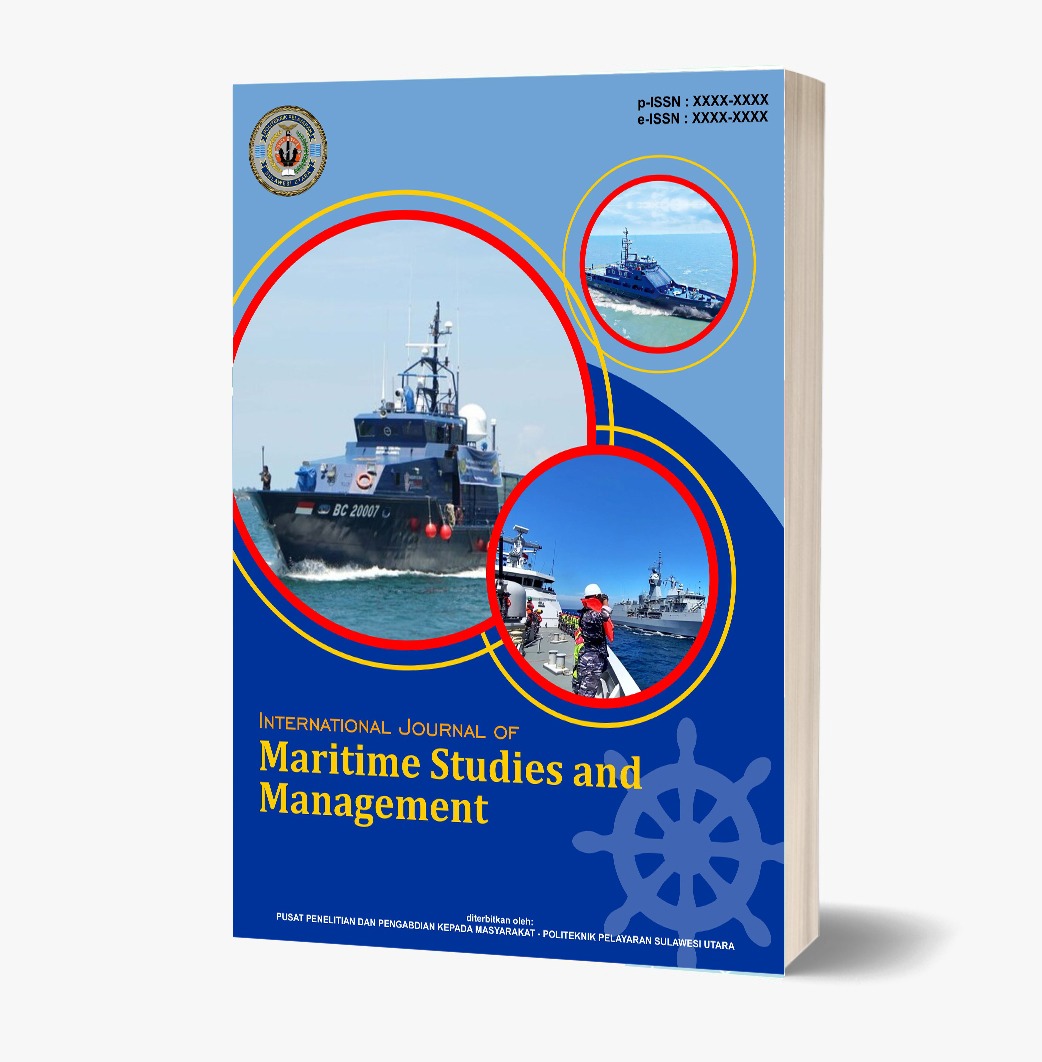The Influence of Leadership Style on Crew Performance and Job Satisfaction on Board Commercial Vessels
Keywords:
Crew performance, job satisfaction, leadership style, maritime industry, transformational leadershipAbstract
This study examines the influence of leadership style on crew performance and job satisfaction aboard commercial vessels. The maritime industry presents unique challenges where effective leadership is essential for ensuring operational efficiency, safety, and crew well-being. The objective of this research is to identify which leadership styles—transformational, transactional, or laissez-faire—have the most significant impact on crew members’ performance and overall job satisfaction. A quantitative approach was employed, utilizing structured questionnaires distributed to 120 seafarers working on various types of commercial ships. Data were analyzed using multiple regression analysis to assess the relationship between leadership style and both dependent variables. The findings reveal that transformational leadership has the strongest positive correlation with both crew performance and job satisfaction, while transactional leadership showed moderate effects, and laissez-faire leadership had a negative impact. These results highlight the importance of promoting transformational leadership practices in maritime operations to enhance productivity and improve crew morale. The study provides valuable insights for ship management companies and maritime training institutions in shaping leadership development programs tailored to the maritime environment.
References
Bass, B. M., & Avolio, B. J. (1995). MLQ Multifactor Leadership Questionnaire Manual. Mind Garden.
Bass, B. M., & Riggio, R. E. (2006). Transformational Leadership (2nd ed.). Psychology Press.
Creswell, J. W. (2014). Research Design: Qualitative, Quantitative, and Mixed Methods Approaches (4th ed.). Sage Publications.
Edmondson, A. (1999). Psychological safety and learning behavior in work teams. Administrative Science Quarterly, 44(2), 350–383. https://doi.org/10.2307/2666999
Hair, J. F., Black, W. C., Babin, B. J., & Anderson, R. E. (2010). Multivariate Data Analysis (7th ed.). Pearson Education.
Hetherington, C., Flin, R., & Mearns, K. (2006). Safety in shipping: The human element. Journal of Safety Research, 37(4), 401–411. https://doi.org/10.1016/j.jsr.2006.04.007
Jensen, O. C., Sørensen, J. F. L., Thomas, M., Canals, M. L., Hu, Y., & Nikolic, N. (2016). Working conditions and mental health in the European maritime sector: Recommendations for mental health promotion. International Maritime Health, 67(4), 180–186. https://doi.org/10.5603/IMH.2016.0035
Judge, T. A., & Piccolo, R. F. (2004). Transformational and transactional leadership: A meta-analytic test of their relative validity. Journal of Applied Psychology, 89(5), 755–768. https://doi.org/10.1037/0021-9010.89.5.755
Nielsen, K., & Daniels, K. (2012). Does shared and differentiated transformational leadership predict followers’ working conditions and well-being? The Leadership Quarterly, 23(3), 383–397. https://doi.org/10.1016/j.leaqua.2011.09.001
Northouse, P. G. (2016). Leadership: Theory and Practice (7th ed.). Sage Publications.
Sekaran, U., & Bougie, R. (2016). Research Methods for Business: A Skill-Building Approach (7th ed.). Wiley.
Theotoku, E. (2015). The role of shipboard leadership in the safety culture of vessels. WMU Journal of Maritime Affairs, 14, 313–331. https://doi.org/10.1007/s13437-015-0077-4
Wadsworth, E. J. K., Allen, P. H., McNamara, R. L., & Smith, A. P. (2008). Fatigue and health in seafarers. International Maritime Health, 59(1–4), 85–92.
Wu, T. C., Chen, C. H., & Li, C. C. (2016). A study of the relationship between safety leadership and safety climate in container terminal operations. Journal of Marine Science and Technology, 24(1), 19–27.











